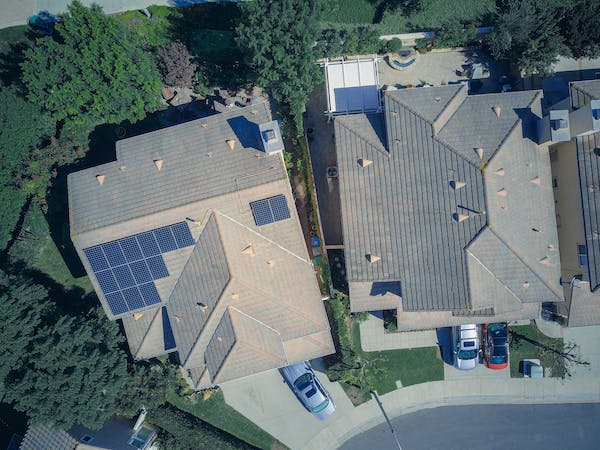10 Easy Steps to Make Your Home Solar-Powered
- Research: Investigate the solar power options available to you, including the type of solar panel that will best suit your needs. Consider the cost, durability, and efficiency of the solar panel you’re interested in.
- Plan: Determine the best place to install the solar panels. Consider the amount of sunlight the location will receive and the orientation of the panels.
- Purchase: Shop around for the best deals on solar panels and related equipment. Consider warranties, installation costs, and any other fees associated with purchasing the equipment.
- Installation: Hire a professional to install the solar panels and related equipment. Follow all local regulations and safety protocols.
- Connect: Connect the solar panels to your home’s electrical system. Make sure the connections are secure and in line with local regulations.
- Monitor: Monitor the solar panels’ performance and make sure they’re operating properly. Keep an eye on the amount of electricity being produced and consumed.
- Maintenance: Schedule regular maintenance checks of your solar panels and related equipment. This will help ensure they remain in good working order.
- Incentives: Look into any available incentives for going solar. This could include tax credits, rebates, and other financial incentives.
- Education: Educate yourself and your family about the benefits of solar power. Knowing how to use and maintain your solar panels can help you get the most out of them.
- Enjoy: Enjoy the benefits of having a solar-powered home! This includes reducing your energy bills, helping the environment, and being part of a global effort to reduce our reliance on fossil fuels.
The Benefits of Going Solar: Why Solar Power is the Future
The sun is a powerful, reliable source of energy that has been illuminating our planet for billions of years. It is no wonder that humans have been harnessing this energy for centuries. Today, with the help of modern technology and the growing need for clean, renewable energy sources, solar power is becoming increasingly popular.
The benefits of going solar are many. For starters, solar energy is renewable and free. It requires no fuel and emits no harmful gases, making it a clean, cost-effective way to power your home. Solar panels also have a long lifespan, so you won’t have to worry about replacing them anytime soon.
Solar power is also incredibly efficient. Solar panels can produce up to 20 times more energy than they consume, meaning you can save money on electricity bills. Solar energy is also more reliable than other sources of energy, as it’s not impacted by weather conditions or other external factors.
Finally, going solar is good for the environment. Solar energy is a clean, renewable resource that has no negative impact on the planet. It helps reduce greenhouse gas emissions and slows down global warming.
It’s clear that solar power is the future. As the cost of solar technology continues to decrease and the demand for renewable energy rises, more and more people are turning to this clean, reliable energy source. With the numerous benefits of going solar, it’s no wonder why this technology is becoming so popular.
The Cost of Going Solar: What You Need to Know Before Investing
Investing in solar energy is becoming increasingly popular, and for good reason: it’s a clean, renewable energy source that will save you money in the long run. But what do you really need to know before considering a solar energy investment? Here, we’ll break down the costs associated with going solar, so you can make an informed decision.
First, you’ll need to take into account the upfront costs of a solar energy system. These include the cost of purchasing and installing the solar panels, as well as any associated wiring and installation costs. Depending on the size and type of system you choose, these costs can range from a few thousand dollars to tens of thousands.
You may also have to pay additional fees for permits and inspections. In some cases, there may be additional costs associated with connecting your solar energy system to the local power grid.
Once your system is installed, you’ll start to see savings on your monthly energy bills. However, it’s important to note that the size of these savings will depend on the amount of energy you use. If you have a large family or use a lot of energy, the savings may not be as high as they would be for a smaller household.
Finally, you should also consider how long your system will last and how much you’ll need to invest in maintenance and repairs over the years. Most solar panels are designed to last 25 years or more, but they may require periodic maintenance and repairs.
By taking all of these factors into account, you can make an informed decision about whether or not investing in solar energy is right for you. With the right information, you’ll be able to enjoy the savings and environmental benefits of solar energy for many years to come.
Solar Panel Maintenance Tips: How to Keep Your System Running Efficiently
- Clean your solar panels regularly. It is important to keep your solar panels free from dirt, dust, and debris. Cleaning should be done at least once a month, and more frequently during the summer months. A soft brush, cloth, or sponge is best for cleaning your solar panels.
- Inspect your solar panel system regularly. Make sure all the wires and connections are secure and free from corrosion. Look for signs of damage such as cracks, dents, or fading. If you notice any of these problems, contact a professional for repair.
- Monitor your system’s performance. Track the amount of energy produced by your solar panels daily. This will help you spot any irregularities or potential issues.
- Check your inverter. Make sure the inverter is in good working condition and not overloaded.
- Protect your system from extreme temperatures. Heat can cause damage to your solar panels and reduce their efficiency. Keep your system away from direct sunlight as much as possible. Additionally, make sure your system is protected from cold temperatures by covering it or using insulation materials.
- Trim nearby trees. Keep trees and other vegetation away from your solar panels. This will ensure that they receive enough sunlight and are not blocked by shadows during the day.Following these tips will help you keep your system running at peak efficiency for years to come. Investing in regular maintenance and monitoring will go a long way in ensuring your solar panel system is working optimally.
How to Choose the Right Solar Panels for Your Home: What to Look For
When it comes to choosing the right solar panels for your home, there are a few key factors to take into consideration. First and foremost, you will need to decide on the size of the solar panel array that you need. Depending on your home’s energy needs, you may require a larger or smaller array of solar panels.
Once you have determined the size of your solar panel array, it is important to consider the type of solar panel that you would like to install. Most solar panels are made of either mono- or polycrystalline silicone, and each type of panel has its own advantages and disadvantages. Mono-crystalline silicone solar panels are more efficient, smaller, and more durable than polycrystalline panels, but they also tend to be more expensive. Polycrystalline silicone solar panels are less efficient but more affordable.
It is also important to consider the warranty that comes with the solar panel array. Most warranties will cover the installation fees, the cost of the system, and any repairs or replacement parts needed. Make sure to read the warranty closely to ensure that you are covered for any potential issues that might arise with your system.
Finally, when it comes to choosing the right solar panels for your home, it is important to research the company that you are working with to make sure that they are reputable. Look for reviews online, read customer testimonials, and check with local consumer protection agencies to make sure that the company is legitimate. By doing your research, you can make sure that you are investing in a quality product that will provide you with reliable energy for years to come.






